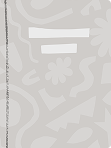Goodreads helps you follow your favorite authors. Be the first to learn about new releases!
Start by following Katy Butler.
Showing 1-9 of 9
“When my father was vigorous and lucid, (my mother) regarded medicine as her wily ally in a lifelong campaign to keep old age, sickness, and death at bay. Now ally and foe exchanged masks. Medicine looked more like the enemy, and death the friend. (p. 184)”
― Knocking on Heaven's Door: The Path to a Better Way of Death
― Knocking on Heaven's Door: The Path to a Better Way of Death
“When a fine old carpet is eaten by mice, the colors and patterns of what's left behind do not change,' wrote my neighbor and friend, the poet Jane Hirschfield, after she visited an old friend suffering from Alzheimer's disease in a nursing home. And so it was with my father. His mind did not melt evenly into undistinguishable lumps, like a dissolving sand castle. It was ravaged selectively, like Tintern Abbey, the Cistercian monastery in northern Wales suppressed in 1531 by King Henry VIII in his split with the Church of Rome. Tintern was turned over to a nobleman, its stained-glass windows smashed, its roof tiles taken up and relaid in village houses. Holy artifacts were sold to passing tourists. Religious statues turned up in nearby gardens. At least one interior wall was dismantled to build a pigsty.
I've seen photographs of the remains that inspired Wordsworth: a Gothic skeleton, soaring and roofless, in a green hilly landscape. Grass grows in the transept. The vanished roof lets in light. The delicate stone tracery of its slim, arched quatrefoil windows opens onto green pastures where black-and-white cows graze. Its shape is beautiful, formal, and mysterious. After he developed dementia, my father was no longer useful to anybody. But in the shelter of his broken walls, my mother learned to balance her checkbook, and my heart melted and opened. Never would I wish upon my father the misery of his final years. But he was sacred in his ruin, and I took from it the shards that still sustain me.”
― Knocking on Heaven's Door: The Path to a Better Way of Death
I've seen photographs of the remains that inspired Wordsworth: a Gothic skeleton, soaring and roofless, in a green hilly landscape. Grass grows in the transept. The vanished roof lets in light. The delicate stone tracery of its slim, arched quatrefoil windows opens onto green pastures where black-and-white cows graze. Its shape is beautiful, formal, and mysterious. After he developed dementia, my father was no longer useful to anybody. But in the shelter of his broken walls, my mother learned to balance her checkbook, and my heart melted and opened. Never would I wish upon my father the misery of his final years. But he was sacred in his ruin, and I took from it the shards that still sustain me.”
― Knocking on Heaven's Door: The Path to a Better Way of Death
“To do more, is not necessarily to do better.”
― Knocking on Heaven's Door: The Path to a Better Way of Death
― Knocking on Heaven's Door: The Path to a Better Way of Death
“Nothing is more profound than contemplating your feelings about how you want to be treated when you are dying, or how much suffering and disability you are willing to endure in return for more time on earth. Nothing could be kinder to people who love you than to give them clear guidance for the hardest decisions they may ever make. And little could be more empowering than protecting yourself from unwanted medical treatments that now, far too often, dehumanize modern death.”
― The Art of Dying Well: A Practical Guide to a Good End of Life
― The Art of Dying Well: A Practical Guide to a Good End of Life
“Nothing much will change until we pay doctors and hospitals when they appropriately do less as well as we do when they inappropriately do too much.”
― Knocking on Heaven's Door: The Path to a Better Way of Death
― Knocking on Heaven's Door: The Path to a Better Way of Death
“The patient had done everything my parents had been told to do. She'd signed a standard living will asking for the discontinuance of life support if she were comatose or expected to die within six months. In the opinion of the medical team, she was neither. She'd appointed three relatives to act as her medical surrogates when she could not speak for herself. But [medical ethicist] Bramstedt questioned whether the hostile relative had 'decision-making capacity'. The request for the removal of life support had been 'made in tandem with loud and aggressive behavior,' Bramstedt wrote, which 'could be a signal that projection is occurring, the emotional fervor being a possible mechanism of expressing the surrogate's own values and preferences,' rather than the patient's.
The emotional fervor and aggression of the doctors, and the possibility that they were expressing their own values and preferences, were not discussed in the article.”
― Knocking on Heaven's Door: The Path to a Better Way of Death
The emotional fervor and aggression of the doctors, and the possibility that they were expressing their own values and preferences, were not discussed in the article.”
― Knocking on Heaven's Door: The Path to a Better Way of Death
“Once upon a time we knew how to die. We knew how to sit at a deathbed. We knew how to die and how to sit because we saw people we loved die all through infancy, childhood, youth, middle age, and old age: deaths we could not make painless, deaths no machine could postpone. The deaths of our ancestors were not pretty. Some died roaring in pain. But through the centuries we tutored ourselves in the art of dying by handing down stories about how those we loved met their deaths.”
― Knocking on Heaven's Door: The Path to a Better Way of Death
― Knocking on Heaven's Door: The Path to a Better Way of Death
“Facebook group Slow Medicine, who”
― Knocking on Heaven's Door: The Path to a Better Way of Death
― Knocking on Heaven's Door: The Path to a Better Way of Death
“optimistic, science-worshipping culture wants to medicalize aging and make it nothing more than a collection of specific diseases that medicine can prevent or fix, one item at a time. But no matter what deal we make with the devil, nature outwits us. Dying can be postponed, but aging cannot be cured.”
― Knocking on Heaven's Door: The Path to a Better Way of Death
― Knocking on Heaven's Door: The Path to a Better Way of Death







